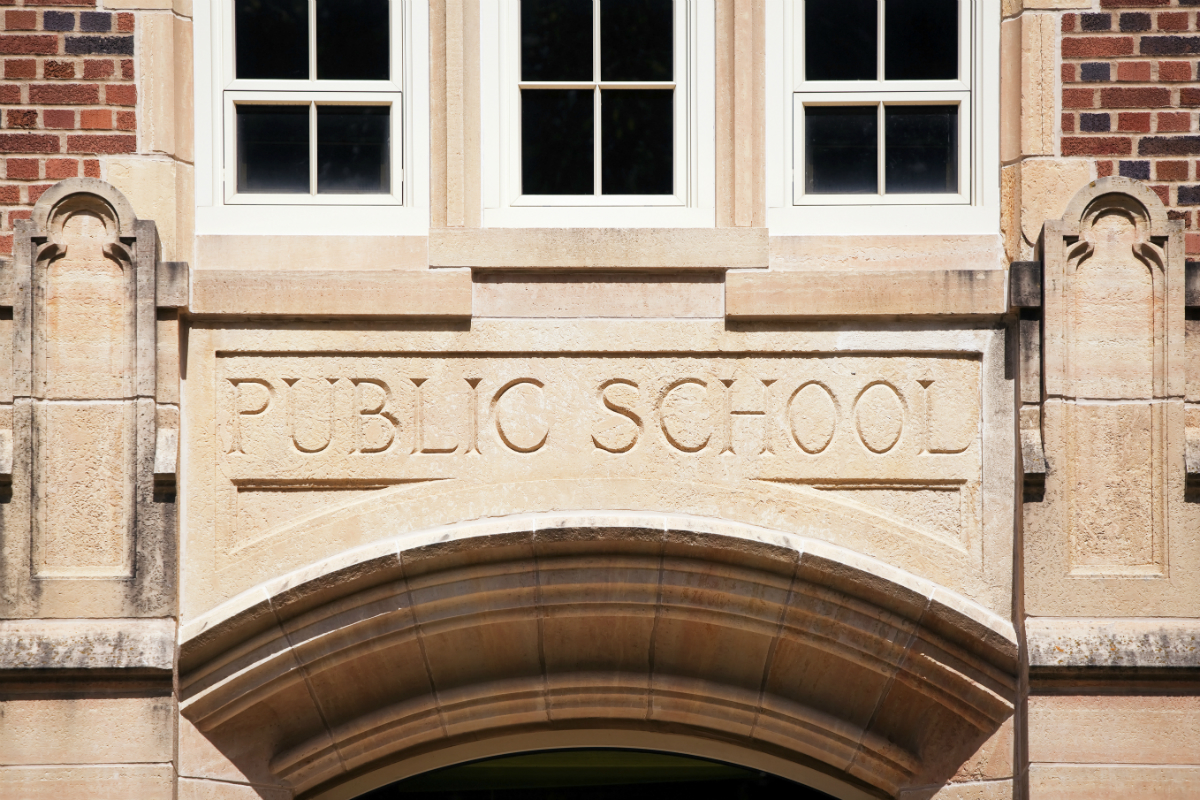Building off Wednesday’s preview of what education stakeholders can expect from the May Revision of the Governor’s budget, Gov. Gavin Newsom today offered further detail on what he called “The California for All Kids” plan, encompassing broadband for all — at school and at home, universal transitional kindergarten, expanded learning and year-round enrichment programs, community schools, teacher preparedness and support, and behavioral health for children and youth.
The Governor’s generous proposal contains significant one-time money for programs that address student need, but does little to address the long-term ability of schools to contend with continuing financial pressures that inhibit their ability to provide students with the resources needed for success in college, career and civic life.
“We appreciate that Gov. Newsom has prioritized education in his May Revision budget proposal and allocated substantial sums for community schools, mental health, academic interventions, extended learning, teacher recruitment and smaller class sizes. These programs address areas of great need and will help strengthen the state’s K-12 schools,” said CSBA President Susan Heredia.
“At the same time, we continue to have concerns about the state creating new programs with one-time money while failing to address ongoing structural funding issues that threaten the financial health of school districts and county offices of education. CSBA will continue to work with the Administration and the Legislature to pass a final budget that repays schools $2.6 billion for money that was deferred when budget projections were more pessimistic, provides relief beyond the current year for skyrocketing pension costs, addresses a $600 million spike in unemployment insurance payments, and restores $900 million lost over a 3-year period and more than $350 million annually in future monies to schools that were improperly directed to certain county governments. All of these items represent critical funding opportunities exceeding $4 billion that could be used to further support students in a time of crisis.”
Proposition 98 guarantee grows, supplemental payment eliminated
As reported on Wednesday, soaring revenues have increased the Proposition 98 guarantee to $93.7 billion in 2021–22. The guarantee will remain in Test 1 for the 2021–22 budget year. Increased revenues will require a $4.6 billion payment to the Proposition 98 reserve, which will trigger school district reserve caps beginning in 2022–23. The February, March, April and May deferrals established by the Budget Act of 2020 will be fully paid off, yet it will still leave a $2.6 billion deferral remaining balance in the June apportionment, which will be paid in July 2021.
Included in the May Revision is an additional 1 percent bump to the compounded cost-of-living adjustment for the Local Control Funding Formula for a total of 5.07 percent, a 4.05 percent COLA for special education and a 1.7 percent COLA for most categorical programs.
Per-pupil spending will rise to $13,977 per student in Proposition 98 General Fund and $21,152 when taking all funding sources into account. Given the increase in funding, the May Revision eliminates the $2.3 billion supplemental payment the Governor proposed in January.
In-person learning and changes to independent study
The Governor reiterated that distance learning statutes will expire at midnight on June 30, 2021, and that families can expect a return to full-time, in-person education for fall 2021. To support this, the May Revision provides an additional $2 billion in health and safety funding for purposes that include testing and vaccine initiatives, enhanced cleaning, personal protective equipment and improved ventilation.
Recognizing the need for high-quality options for students that may not wish to return to the classroom, the Governor proposes changes to the existing Independent Study (IS) statutes. IS is critical to ensuring LEAs can provide virtual learning options for students and families who are uncomfortable with returning to in-classroom instruction in the fall. LEAs will be able to generate state funding using the existing traditional and course-based independent study models, with additional requirements to:
- Provide access to technology, internet connectivity, and a dedicated and rigorous curriculum
- Develop and implement a framework of tiered re-engagement strategies for students not meaningfully participating in instruction
- Track and record daily student participation and interaction with teachers
Broadband for all
Gov. Newsom announced $7 billion over three years in new investments in broadband access to close the digital divide. The budget includes state and federal funds to build out the “middle-mile” network and utilizes one-time federal American Rescue Plan funds in the California Advanced Services Fund to “last-mile” service for unserved households. A new $500 million Loan Loss Reserve Account will assist local governments, tribes and nonprofits to secure private financing for new municipal fiber networks and another $500 million in federal ARP funds will go to expand programs promoting access to affordable telephone services in rural areas to include broadband.
“A new grade” in universal transitional kindergarten
The May Revision lays out the Governor’s plan to expand transitional kindergarten to provide a minimum of three hours of instructional time for all 4-year-olds in the state, beginning with $900 million for the 2022–23 school year and ramping up to 250,000 new TK students and $2.7 billion in 2024–25. The proposal includes a rebenching of the Proposition 98 guarantee to adjust for the new students that are not currently a part of Proposition 98. Under the plan, LEAs would use 2021–22 for planning and infrastructure development and TK would expand in increments of three months of age per year from 2022–23 through 2024–25.
The May Revision also proposes $380 million in Proposition 98 General Fund in 2022–23 (growing to $740 million in 2024–25) to add additional certificated or classified staff in TK classrooms and reduce the adult-to-child ratios from 1:24 to 1:12.
Year-round enrichment activities and accelerated learning
The May Revision also includes a $5 billion, five-year plan to provide no-cost before- and after-school and summer programs for all elementary school students in LEAs with the highest concentrations of low-income students, English learners and youth in foster care. The proposed plan would provide what the Governor called “surround sound enrichment”: nine hours of instruction and enrichment activities each school day and for six weeks over summer. It remains to be seen how and which elementary schools will be identified based upon the “highest concentrations of low-income students.”
Programs would include an educational element in which tutoring or homework assistance is provided, and a supplemental element like STEM, fine arts, career technical education, recreation and physical fitness. After full implementation, funds would be incorporated into the LCFF concentration grant calculation.
A further $2 billion in federal funds and $623 million one-time Proposition 98 General funds will go towards research-based interventions to address the impacts of COVID-19 on student learning, including intensive tutoring. These new funds for accelerated learning will build on the $4.6 billion allocated through Assembly Bill 86, the “Safe Schools for All Plan” for extended learning this past March.
Expansions in student support services and community schools
Gov. Newsom also proposed $3 billion over a three-year period to implement and expand community schools across the state. Grants will support an estimated 1,400 LEAs in converting school campuses into full-service community schools. To support this effort, the May Revision includes an ongoing $1.1 billion increase to the LCFF concentration grant to increase the number of adults providing direct services on campus, such as counselors, nurses, teachers, paraprofessionals and other student support providers. LEAs who receive these funds will be required to include how these funds are used to increase the number of certificated and classified staff on their campuses in their LCAP.
Teacher recruitment, retention and training
The May Revision builds on the investments in the January Governor’s Budget to propose $3.3 billion in funding to support and expand the educator workforce. To bolster workforce preparation, the proposal allocates:
- An additional $450 million one-time Proposition 98 General Fund over five years for teacher residencies and other grow-your-own teacher credentialing programs.
- An additional $400 million one-time General Fund over five years for Golden State Teacher grants.
- An additional $100 million one-time Proposition 98 General Fund over five years for the Classified School Employee Teacher Credentialing Program.
- $65.5 million one-time Proposition 98 General Fund and $45.6 million one-time General Fund to establish the Roadmap to Pre-K through 12 Educational Employment Program, a statewide recruitment and communications strategy.
- $20 million one-time General Fund to provide a credential fee waiver in 2021–22 for individuals entering the K-12 educator workforce.
- $15 million one-time Proposition 98 General Fund over three years to support 6,000 teachers to receive state certification to teach computer science.
The proposal would also make the follow investments in educator retention and training:
- An additional $1.3 billion one-time Proposition 98 General Fund over three years (for a total of $1.5 billion) for the Educator Effectiveness Block Grant to provide LEAs with training resources for classified, certificated and administrative school staff in specified high-need topics.
- $250 million one-time Proposition 98 General Fund over five years for incentives to attract and retain highly qualified teachers in high-poverty schools as mentors for other instructional staff.
- $60 million one-time Proposition 98 General Fund for the Classified School Employee Summer Assistance Program.
- $25 million one-time Proposition 98 General Fund over five years for the 21st Century School Leadership Academy.
- Additional one-time funds are proposed to increase educator training and resources in early math, reading, science instruction, computer science, dyslexia and LGBTQ+ cultural competency.
A boost for school nutrition programs
The May Revision allocates $150 million in ongoing Proposition 98 General Fund to encourage LEA participation in federal universal meal programs. A further $100 million in one-time Proposition 98 funds is proposed for school kitchen infrastructure upgrades and training for school cafeteria staff, and $30 million one-time General Fund dollars will go to support the Farm-to-School initiative.
Funding to “transform children’s behavioral health”
Recognizing the immense challenges faced by children and youth during the pandemic, as well as those that predated the COVID-19 crisis, the May Revision includes $4 billion over four years to support behavioral health for Californians aged 0-25. Funds will support screening students for early identification; connecting students to services for issues like substance abuse, stress, trauma, grief and psychological disorders; and to develop interactive tools via a virtual platform.
Negotiations begin
With the release of the May Revision, budget season will begin in earnest. Negotiations with the Legislature and committee hearings in the Senate and Assembly will continue through May until the June 15 budget passage deadline. CSBA will continue to provide updates as the budget cycle continues.
CSBA May Budget Revision webinar
CSBA experts and state and local voices analyzed the May Budget Revision, its implications for schools and CSBA’s response in a 90-minute webinar on May 14. View the recording on CSBA’s YouTube page.





